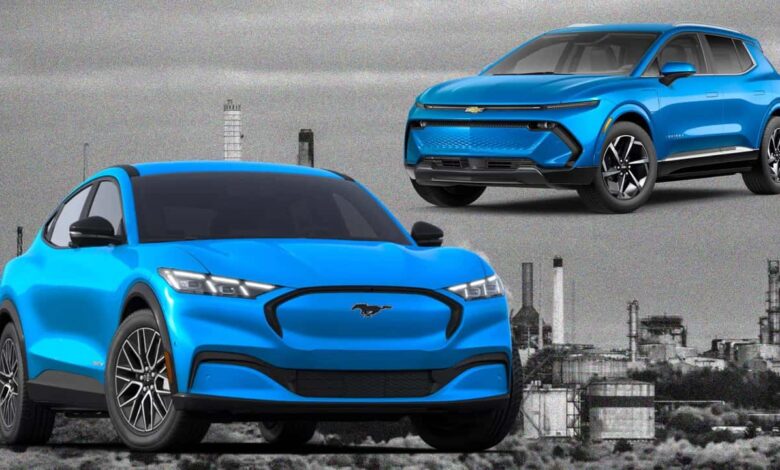EVs Will Decimate Big Oil. Even Without U.S. Tax Credits.


- The U.S. just handed the fossil fuel industry a big win. No matter how you look at it, that win will be short lived.
- Electric vehicles are already displacing millions of barrels of oil per day, saving hundreds of millions of metric tons of carbon dioxide from entering into the atmosphere.
- With or without U.S. support, the world will march on towards cleaner sources of energy.
America just handed a victory to the fossil fuel industry by passing the Trump administration’s “Big Beautiful Bill” in both the House and the Senate. But don’t mistake that for a turning point in the global trajectory of clean transport. The future of zero-emissions road travel isn’t stalling, it’s still accelerating. Despite the latest setback to EVs in Washington D.C., the world remains firmly on track for sustained EV adoption.
For starters, the bill ends the federal tax credits for clean energy programs such as solar, wind and electric vehicles years ahead of schedule. It gives tax breaks to oil and gas companies for drilling and development costs. U.S. companies are now also free to leak as much methane—a hazardous planet-warming greenhouse gas—as they want into the atmosphere for another decade, throwing out a Biden-era penalty on methane emissions.
It sounds bad—and it indeed is. Climate scientists and environmentalists have warned that the bill could seriously harm air quality, jeopardize public health and accelerate planet warming by encouraging more fossil fuel use. But according to research firm BloombergNEF’s Electric Vehicle Outlook 2025, there’s still some reason for optimism: EVs are expected to continue displacing millions of barrels of crude oil each year.
Even if the U.S. slowdown results in 14 million fewer EV sales globally by 2030, the broader transition towards cleaner energy will continue to march on across the world, according to BNEF.
In fact, the future of the oil and gas industry is looking weak, even though it managed to bag a chest-thumping victory this week in the U.S. with the passage of the Trump administration’s Big Beautiful Bill—that victory will only give petroleum companies short-term benefits. Over the long term, oil consumption is still on track to go down drastically and EV sales are expected to grow with new and more competent models.
According to BNEF’s economic transition scenario, the first million daily barrels of road fuel displacement happened in 2018 thanks to early adoption of EVs. Owners who bought EVs stopped visiting gas stations, meaning the petroleum companies started losing those regular customers. Plus, studies show the vast majority of car buyers who make the switch to EVs don’t return to gas cars.
It took another six years for the next million barrels of road fuel to get displaced—by 2024 the world was displacing two million barrels of road fuel per day. For reference, that’s almost equal to how much the whole of South Korea uses in a single day.
By the end of the decade, EVs are expected to displace more than five million barrels of road fuel per day. For context, the U.S. consumed around 20 million barrels of oil daily in 2023, according to the U.S. Energy Information Administration. Had the clean energy policies survived, that number might have dropped even faster. But with Europe and China charging ahead with EV adoption, the U.S. will now be left behind.
This projected decline in oil demand means the world’s leading oil producers now have EVs on their minds. Big Oil has grand plans to become Big EV, as Business Insider said in 2023. The torchbearers of fossil fuels are already making huge bets on EV charging and the mining of lithium, a key raw material used in batteries.
Chevron said in June that it had acquired 125,000 hectares of land in Texas and Arkansas for lithium extraction. BP is rapidly purchasing charging hardware from Tesla and Alpitronic. And Shell Recharge, the oil company’s charging division, is already investing in charging stations worldwide. It opened its largest charging station in Shenzhen in 2023 with 258 fast-charging stalls at just one location.
The global momentum for EVs and other forms of clean energy means oil displacement will continue to grow, just without America in the lead. So even though Washington D.C. might revel in its fossil fuel party for right now, the long term fate of that industry is pretty much decided.
Have a tip? Contact the author: suvrat.kothari@insideevs.com
Source link

